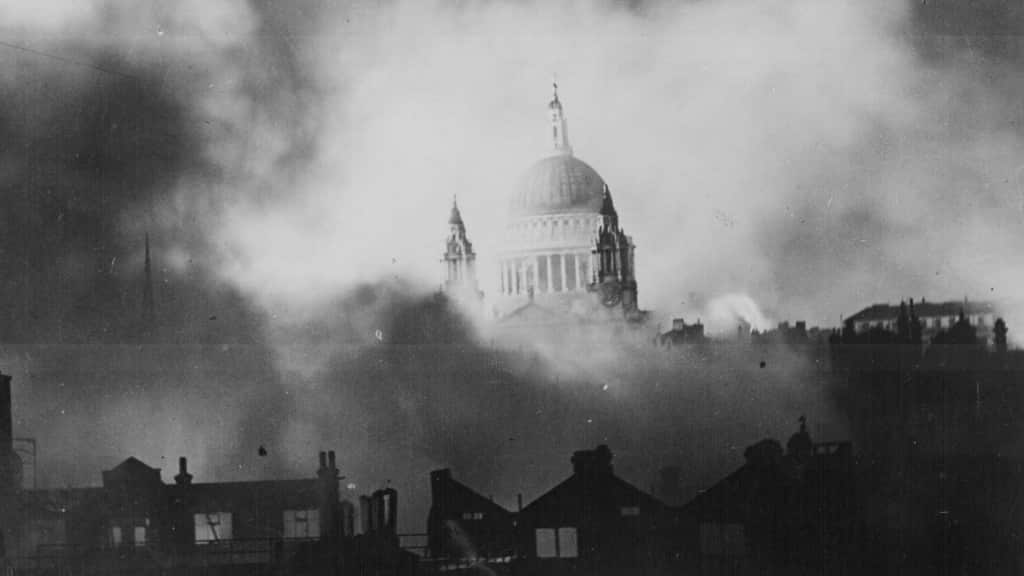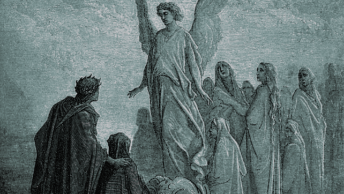I am at the age that every waiting room I sit in makes me think that this could be God’s Waiting Room. I believe that throughout history most people have believed in a God. And with that necessarily follows certain questions of eschatology…that is the meaning of life and the advent of an afterlife.
Socrates believed in an afterlife as well. History is riven with acts of the utmost cruelty and brutality. It is also replete with countless acts of acts of nobility and charity that underscore the duality of man. This by necessity raises the question of reward and punishment and our understanding of Heaven and Hell.
I think most people have similar ideas on the latter but it is Heaven and what must go on there that fascinates, intrigues and maybe just fills us with a great sense of anticipation and maybe even fear. The major drawback is that you have to die to get there.
Since no one, except Jesus, has ever experienced Heaven and then returned to earth, what we really know about it is at best sketchy. There is something Christians call the Beatific Vision — a face-to-face encounter with God that promises to be so overpowering the human imagination just can’t imagine it.
This encounter is supposed to fill us with an over-powering sense of joy that St. Paul said in Corinthians 2:9, is so spectacular that no eye has seen, nor ear heard, nor has the heart of man conceived what God has prepared for those who love Him.
This is really saying something special since there are so many natural wonders and beauties in this life that anything much greater would literally blow our human minds. As a man I find all the natural wonders of the world–from the curvaceous shape of a beautiful woman on the beach to the rolling hills of Virginia and the majestic Maui sky at sunset so uplifting that I have trouble imagining anything much more emotionally satisfying.
In the Book of Revelation, the most incomprehensible and most misunderstood book in the Bible, St. John writes of celestial choirs and a great deal of heavenly pomp and circumstance that doesn’t really seem all that appealing to the average person.
The God that we have been taught to love is all-knowing, and more importantly, all-loving. Loving is giving of Himself and I would think as the Divine host he would focus a little more on His guests. He could give us the grand tour as a proud and generous Host would do in earthly life. I think He would take us around and introduce us to some of the most famous guests that have shared His love. And lets face it, we would be His eternal guests since we did literally nothing to earn or warrant His beneficence.
Then there would be the presumptive reunions with friends and families and the meeting of new people. I would love to sit around the campfire or at a sidewalk Bistro and talk history with some of our former presidents and generals. I would love to meet Bishop Fulton J. Sheen and pick his enormous brain. I would also love to know who really killed the Kennedys, maybe Marilyn and Princess Di and if FDR knew about the Japanese sneak attack at Pearl.
I will be truly saddened if my father were not there. He never joined the Catholic Church and quite frankly, though he respected my mother’s faith, he never made any outward allegiance to any religion. But I have to think and hope that my mother’s 15 years as an Alzheimer’s victim was applied to whatever debt he may have owed.
If Heaven is supposed to be a perfect happiness and fulfillment of our earthly lives, if some of my closest relatives and friends are not there, what will that do to my happiness? I think that and God’s infinite mercy are the two best arguments for a quasi universal salvation.
Another writer on Heaven recently said that we would get to meet the saints.
That is a scary proposition because so many led what seemed like impeccable lives that I would have tremendous feelings of inferiority around them. I mean what do you say to people who loved God so much that they were devoured by wild animals.
St. Thomas Aquinas would be someone to spend a day with given my incomplete knowledge of Thomistic philosophy. I trust his way of simplifying difficult issues would easily bridge that gap. I would like to meet someone after my own heart––St. Thomas More, who loved God as much as anyone but was reluctant to stick out his neck–until King Henry backed him into his fatal encounter with his executioner. His way was the only way I could have done what our martyrs have done. I never volunteer for anything but when push comes to shove… I would have shot my mouth off to the king and then it would have been too late.
St. Augustine is another story. His Manichean background and the sexual sins of his early years soured him on anything to do with the human body and its sexuality.
And while he renounced this heresy, its views had already permeated his approach to sex, sin and the human body. Sex was dirty and our bodies unclean.
Augustine was plagued by this wretched sin of lust most of his life. It affected the Church’s teaching on marriage and stained its sacramental importance. I know Saint John Paul II tried to do a lot to erase that stain with his Theology of the Body but there is still a long way to go.
The confusion attendant to the Biblical account of creation just complicates our understanding of sex, nudity and marriage. Our first parents, whether it was an allegory or an actual fact, were created in their natural state. Since they had complementary sexual organs, it is not much of a stretch to say that they did engage in lots of love-making, just as God had intended. But I wonder if this was just reproductive sex since child-bearing became one of the negative results of the fall of man. John Milton made this perfectly clear in his Paradise Lost epic poem.
Boston College theologian, Peter Kreeft, believes there will be sex in Heaven for all for whom it was an integral part of their saintly lives on earth. His ideas on spiritual sex are provocative and engaging. How that would work is another of the many mysteries of the afterlife.
There were no clothes necessary because they were in a state of pristine beauty, just as God had intended. But the serpent on the vine changed things for all eternity.
After they partook of the fruit of good and evil, they realized they were naked and sin entered the world and with it lust.
I define lust as the innate desire to use another human being merely for the pleasure of the act or thought. Most often the subject matter is sex. As a result, because of their shame, they covered their loins. Some theologians say theirs was a sexual sin but I have found nothing to confirm that. But they must have been naked sometime after that because they had at least two children–Cain and Abel. And there had to be some daughters, too.
Millions of married couples today are comfortable in their spouses’ company and even sometimes, the extended family without the benefits of any clothing. Have they lost their shame? Or are they merely treating their bodies more like God intended?
Perhaps more homilies should deal with thoughts about Heaven since that is, after all, our main priority in life is our salvation. Maybe more people would take iot more seriously if the Church did a better job in selling its most important product.








